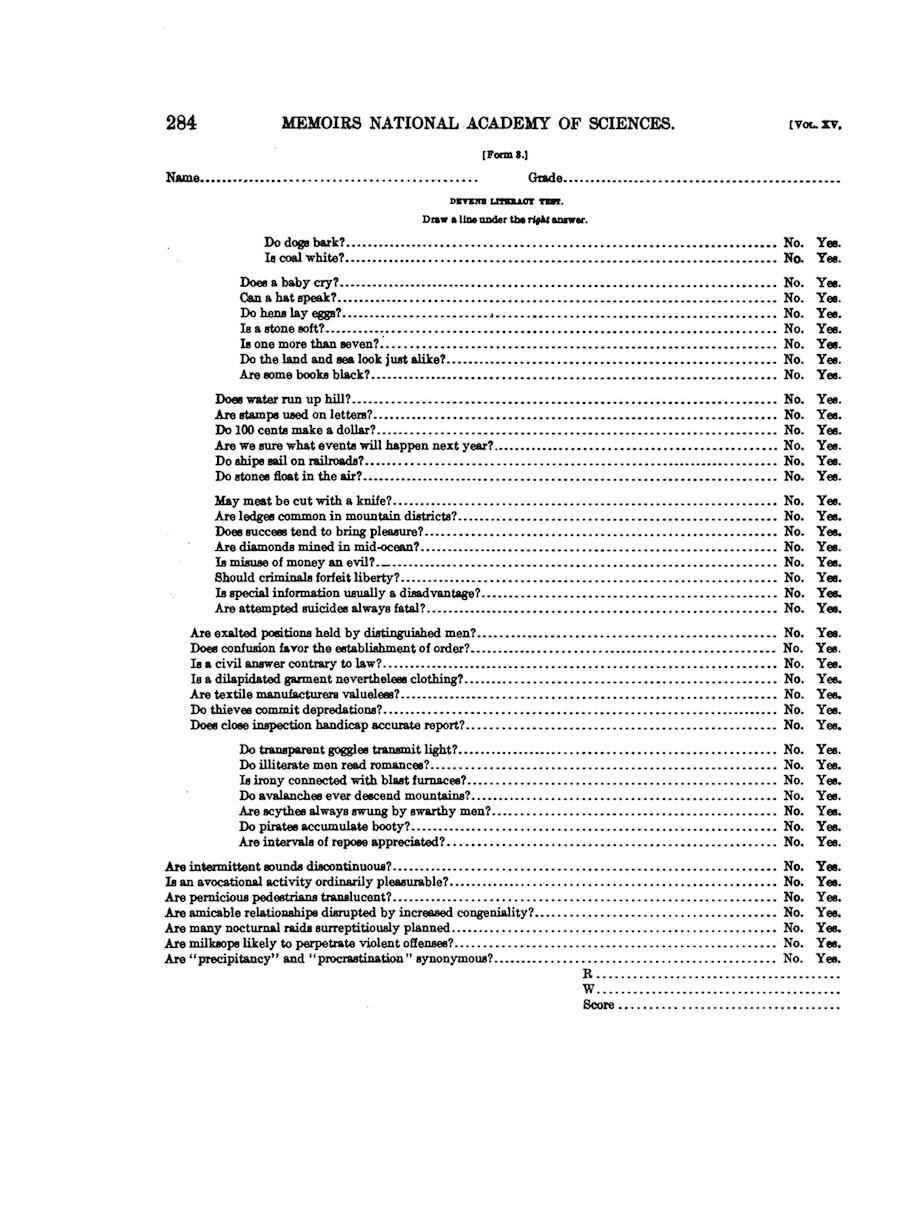The Vault is Slate’s history blog. Like us on Facebook, follow us on Twitter @slatevault, and find us on Tumblr. Find out more about what this space is all about here.
Here is one version of the Devens Literacy Test, used on Army recruits during World War I. (See three other versions here.) The test was designed by psychologist E.A. Shaw and named after Camp Devens, in Ayer, Mass., where it was developed. It begins with simple queries meant to be answerable by people with minimal education, moving forward into more and more difficult questions targeted at soldiers who had been to college.
As historian Daniel J. Kevles writes, American psychologists found the mass recruitment of soldiers during WWI to be a great opportunity for their relatively new profession. Scientists who believed in new methods of intelligence testing excitedly proposed to use the tests to sort recruits into military occupations.
After Robert Yerkes, who was president of the American Psychological Association at the time, won the support of the surgeon general of the Army and was given an official commission, he and his colleagues entered Army training camps armed with a battery of such tests. By the end of the war, Yerkes and his staff had tested a total of 1,726,000 soldiers. (And found most of them wanting.)
Kevles writes that many of these tests, though advertised as measuring “native” mental ability, instead asked questions that required significant cultural background to answer. The Devens Test questions, though meant to measure reading comprehension, do assume a basic shared understanding of social mores (“Is incessant discussion usually boresome?” “Does success tend to bring pleasure?” “Do Christians often overlook faults?”)
Our distant historical vantage point lends other questions a flavor of strange poetry: “Is a guitar a kind of disease?” “Do serpents make oblong echoes?” “Do conscientious brunettes exist?”
The publication doesn’t contain a key (perhaps assuming that the readers of the Memoirs of the National Academy of Sciences would find the answers obvious), so we have to guess at the “correct” answers. That’s not always simple, because some are straight-up stumpers: “Is a ‘gelatinous exaltation’ ridiculous?” “Do tendrils terminate in cerebral hemorrhages?”
How to score the Devens Test:
Subtract the number of wrong answers (or—in this case—questions that you find unanswerable) from the ones you think you got right. Score below 6: Illiterate; 6-20: Primary literacy; 21-25: Grammar school literacy; 26-30: Junior high school; 31-35: Senior high school; 36-42: College level.
Vault reader Michael Coles originally brought these tests to my attention. Thank you for the tip.

Memoirs of the National Academy of Sciences, Volume XV. Psychological Examining in the United States Army. Edited by Robert M. Yerkes. Via Google Books.